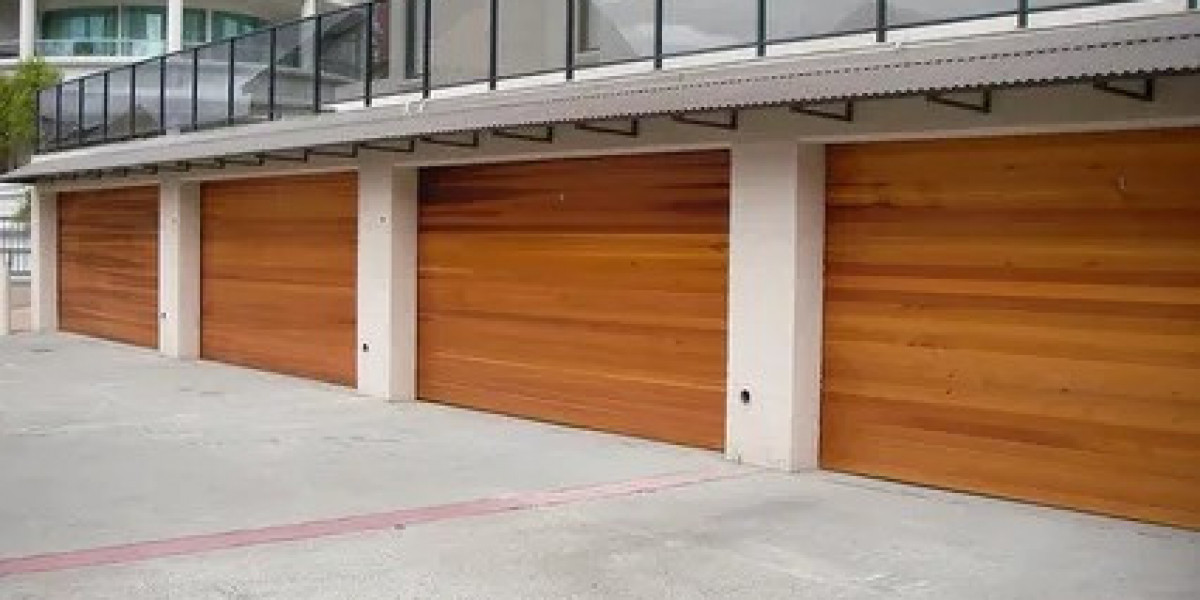Hydronic heating panels offer a quiet, efficient, and luxurious way to heat your home or workplace. Using heated water that circulates through pipes within the panels, they provide gentle radiant warmth that spreads evenly across the room. Unlike forced-air systems, hydronic heating doesn’t blow dust or allergens, making it an excellent choice for those with respiratory sensitivities. Sleek in design and highly energy-efficient, these panels create a cozy, consistent temperature while reducing environmental impact and energy costs.
What are Hydronic Panels? Understands its Role
Hydronic panels are advanced heating systems that utilize water as a medium for transferring warmth. They operate by circulating heated water through pipes embedded in floors, walls, or ceilings to create an even and comfortable indoor climate. These panels can be integrated into various spaces, providing flexible options for both residential and commercial settings. Unlike traditional radiators, hydronic panels deliver heat more uniformly across the room.
The design is sleek and modern, often blending seamlessly with contemporary interiors. With varying configurations available, homeowners can choose between radiant floor heating or wall-mounted solutions based on their needs. What sets hydronic panels apart is their energy efficiency. By using water instead of air to distribute heat, they minimize energy loss while ensuring optimal comfort levels throughout the day.
How Do Hydronic Panels Work?
Hydronic panels operate on a simple yet efficient principle. They use water as the medium to transfer heat throughout your space. Heated water circulates through pipes embedded in these panels, radiating warmth into the room. The technology is based on thermodynamics; hotter objects naturally seek cooler ones. As warm water flows through the system, it releases heat energy into surrounding air and surfaces, creating a cozy atmosphere without cold spots.
There are various setups available for hydronic systems. Radiant floor heating involves tubes laid beneath flooring materials, offering seamless warmth from below. Wall-mounted panels also serve well in spaces where traditional heating methods might not be effective or feasible. This adaptability makes hydronic panels an attractive choice for modern homes and businesses alike. Each installation can be tailored to meet specific heating needs while ensuring optimal comfort.
Explaining the Technology behind Them
Hydronic panels operate using a straightforward yet effective principle. Water is heated in a boiler and then circulated through a network of pipes embedded within the panels. This method allows for efficient heat transfer and ensures comfort. The technology relies heavily on thermal conductivity. The materials used in hydronic panels, often metals like aluminum, enhance this process by efficiently radiating warmth into the room. As hot water flows through the pipes, it warms up the surrounding surface area.
Temperature control is another key feature. Thermostats can be integrated to achieve precise heating levels based on your preferences. You have full command over how warm or cool each space feels. Additionally, modern systems incorporate smart technology for remote access and scheduling capabilities. This innovation makes managing home heating more convenient than ever before while optimizing energy use.
Energy Efficiency of Using the Hydronic Panels
Energy efficiency is a crucial aspect of modern heating systems, and hydronic panels play a significant role in ensuring maximum energy efficiency. These panels are designed to transfer heat efficiently throughout the entire system, making them an essential component for maintaining comfortable indoor temperatures while minimizing energy usage.
One of the key benefits of hydronic panels is their ability to distribute heat evenly throughout a space. Unlike traditional forced-air heating systems, which can create hot spots and drafty areas, hydronic panels provide consistent warmth without any fluctuations. This means that rooms will stay at a comfortable temperature for longer periods, reducing the need for constant adjustments and ultimately saving on energy usage.
Moreover, hydronic panels operate using radiant heat, which is known to be more efficient than other forms of heating. Radiant heat works by transferring thermal energy directly from warm surfaces to colder ones, without relying on air circulation. As a result, there is less wasted energy as compared to forced-air systems where heated air can escape through leaks in ductwork or open windows.
Even Distribution of Heat with the Use of Hydronic Panels
Hydronic panels are an essential component in modern heating systems, providing efficient and effective heat distribution throughout a space. One of the key benefits of hydronic panels is their ability to evenly distribute heat, creating a comfortable and consistent temperature throughout the room.
Traditional heating systems, such as forced-air furnaces, rely on blowing hot air into a space which can often result in uneven heating. This is because hot air rises and tends to collect at the ceiling, leaving the lower parts of the room feeling colder. On the other hand, hydronic panels use radiant heat to warm up objects in the room, including furniture, walls, and floors. This leads to more even heat distribution as the warmth radiates from these surfaces into all areas of the room.
Another advantage of hydronic panels is their versatility in placement within a space. They can be installed on walls or ceilings, providing flexibility in design and ensuring that every corner of a room receives adequate heating. In contrast, traditional heating systems require vents or registers to be placed strategically around a room for optimal heat distribution.
Importance of Hydronic Heating Panels for Sale
The importance of hydronic heating panels for sale cannot be overstated. They offer energy efficiency, customizable temperature control, versatility in design and installation, low maintenance costs, and most importantly - superior comfort. With these benefits in mind, it is no surprise that more homeowners are choosing hydronic panels as their preferred option for modern heating systems.
One of the main reasons why hydronic panels are important is their energy efficiency. Unlike traditional forced-air systems that blow hot air into a room, hydronic panels use water to radiate heat evenly throughout the space. This method requires less energy to maintain a comfortable temperature, resulting in lower utility bills and reduced energy consumption.
Moreover, these panels offer customizable temperature control for each room or zone in your home or building. With the use of thermostats and zone valves, you can adjust the temperature in each area according to its specific needs. This means that you can have different temperatures in different rooms based on individual preferences without wasting energy or overheating unused spaces.
Customizable Options with the Hydronic Panels
Customizable options are a key feature of modern heating systems that offer versatility and flexibility for homeowners and builders. In the context of hydronic panels, customizable options refer to the ability to tailor the system according to specific needs and preferences, making it an attractive choice for both residential and commercial properties.
One of the main customizable options when it comes to hydronic panels is size. These panels come in a variety of sizes, making them suitable for different spaces such as apartments, single-family homes, or large commercial buildings. This allows for a customized approach to heating, where each room or area can have its own panel size based on heat requirements.
Another important customizable option is the type of material used in constructing the panel. Hydronic panels are typically made from either aluminum or copper pipes embedded in a metal sheet. The choice between these materials depends on factors like budget, efficiency, and aesthetic preferences. Aluminum is more affordable but has lower thermal conductivity compared to copper. On the other hand, copper provides better heat transfer but comes at a higher cost.
A Look into the Hydronic Heating Panels Price
When considering upgrading or installing a heating system in your home, one of the main factors to consider is the cost. Hydronic panels are becoming increasingly popular for their efficiency and comfort, but many people may wonder about the price tag associated with them. A factor that contributes to hydronic heating panels price is the type of heat source used. The most common sources include boilers or heat pumps powered by gas or electricity.
While gas-powered systems may have a higher upfront cost compared to electric ones, they tend to be more energy-efficient and can result in savings over time. Installation fees also play a role in determining the final price for hydronic panels. It is essential to hire a qualified professional who has experience with these systems as proper installation is crucial for optimal performance and longevity of the system. The complexity and size of your home will also impact installation costs.
In addition to these factors, there are other add-ons that can affect the price point such as zone controls for individual room temperature control and smart thermostat integration for remote access and scheduling options. However, it's important not only to focus on the initial cost but also consider long-term benefits when comparing prices.
Cost Comparison with Other Heating Systems
When evaluating heating systems, cost is a major consideration. Hydronic panels often prove to be competitive against traditional options like forced air or electric heaters. Installation costs can vary significantly based on the size of your home and the complexity of the system. However, hydronic panels typically require less energy over time due to their efficiency. This translates into lower monthly bills.
Moreover, these systems tend to have longer lifespans compared to conventional heat sources. While initial investments might seem high, maintenance expenses are often minimal for hydronic setups. Homeowners frequently report satisfaction with long-term savings that offset upfront costs. By investing in hydronic technology today, you may find yourself enjoying more comfortable winters without breaking the bank every month.
Environmental Benefits of Hydronic Panels
Hydronic panels stand out as a sustainable choice in modern heating solutions. They utilize water, a natural resource, to transfer heat efficiently throughout your home or business. This method reduces energy consumption significantly compared to traditional heating systems. With optimal performance at lower temperatures, hydronic panels can operate effectively with renewable energy sources like solar power.
Moreover, the even distribution of warmth minimizes cold spots and drafts. This consistency not only enhances comfort but also leads to less reliance on backup heating methods that may harm the environment. Using hydronic panels contributes to lower carbon footprints. By reducing overall energy use and allowing for cleaner energy integration, they support eco-friendly practices while keeping spaces cozy year-round. Homeowners can take pride in making an environmentally conscious decision without sacrificing comfort or style.
Conclusion
Hydronic heating panels combine efficiency, comfort, and style, making them a standout choice for modern heating solutions. By delivering steady radiant warmth without circulating dust or allergens, they create a healthier indoor environment while keeping energy consumption low. Their sleek design allows them to blend seamlessly into any space, offering both practicality and aesthetic appeal. Whether you’re upgrading your existing heating system or building a new home, hydronic heating panels provide a long-lasting, eco-friendly way to enjoy warmth and comfort all year round.
FAQS
How Do Hydronic Heating Panels Work?
Hydronic panels use hot water circulated through a closed pipe system to emit radiant heat. This heat warms the objects and surfaces in the room, creating consistent and comfortable warmth.
Are Hydronic Panels Energy-Efficient?
Yes. Hydronic systems retain heat well, allowing them to operate at lower temperatures while still providing effective warmth, which can help reduce energy costs.
Do They Require A Lot Of Maintenance?
Maintenance is minimal. Regular servicing of the boiler or heat source is recommended, but the panels themselves require little attention once installed.
Can They Be Used As The Main Heating System?
Yes. Hydronic panels can serve as a primary heating solution for an entire home or be installed in specific rooms as needed.
Related Business Listings |













